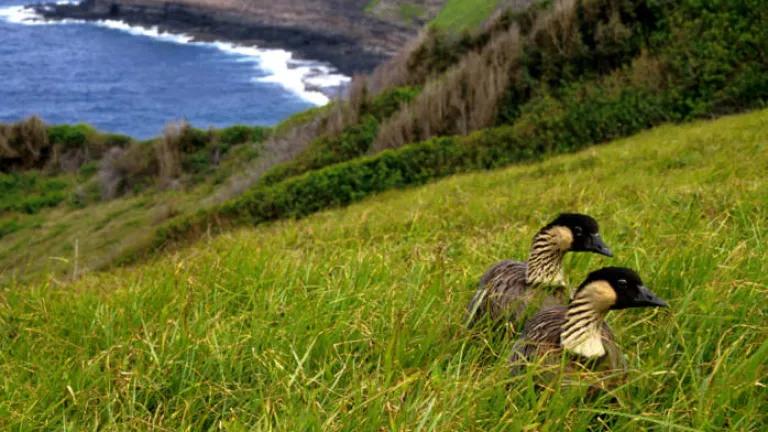Congress Must Reauthorize Anti-Wildlife Trafficking Law NOW!
The law has been extremely effective in training anti-wildlife trafficking staff in trafficking hotspots, increasing prosecutions of traffickers, and harnessing U.S. resources to help countries better combat wildlife trafficking within their borders.

Illegal confiscated wildlife skins
USFWS
Senators Coons (D-DE) and Portman (R-OH) submitted a reauthorization of the Eliminate, Neutralize, and Disrupt (END) Wildlife Trafficking Act today as an amendment to the National Defense Authorization Act (Amendment 4605). The law was originally enacted by President Obama in 2016 as P.L. 114-231.
The amendment ensures continued funding to the the critical anti-wildlife trafficking activities the State Department and other agencies are carrying out under this law, requires the federal government to continue to report on actions taken under the law, and reestablishes the Presidential Task Force on Wildlife Trafficking.
These actions are all extremely important given that wildlife trade isn't showing signs of stopping. Instead, wildlife exploitation -- including wildlife trade -- is the second biggest driver of biodiversity loss, following habitat destruction (and the first biggest driver of biodiversity loss when it comes to marine species).
Thankfully, this law has made big changes when it comes to making it easier for the U.S. to crack down on wildlife trafficking and harness our resources (both financial and technical) to help other countries do the same. The law does three major things:
- Makes wildlife trafficking cases easier to prosecute and authorizes harsher penalties for wildlife traffickers by making egregious criminal violations (defined as those involving more than $10,000 in wildlife products) of the Endangered Species Act, the African Elephant Conservation Act, and the Rhinoceros and Tiger Conservation Act predicate offenses under racketeering and money laundering statutes. In other words, it makes the penalties for wildlife trafficking the same as for other types of organized crime like narcotics trafficking and wire fraud—up to twenty years imprisonment and up to $500,000 in fines. Before this law was enacted, wildlife trafficking violations resulted in small fines and/or six to twelve months in prison--a mere slap on the wrist considering the kind of money involved.
- Provides anti-poaching resources to countries that need it. For example, the law professionalizes wildlife enforcement in affected African countries through the adoption of international standards, effective training programs, and the provision of surveillance equipment. It also facilitates information sharing and coordination of large-scale anti-trafficking efforts.
- Addresses corruption by holding countries accountable for failing to observe international anti-trafficking laws. The law makes the Secretary of State responsible for identifying, reporting on, and withholding assistance from governments that do not fulfil their legal obligations to protect threatened and endangered species.
The law has been extremely effective in training anti-wildlife trafficking staff in trafficking hotspots (referred to in the law as “Focus Countries”), increasing arrests and prosecutions of traffickers both in Focus Countries and in the U.S., and harnessing U.S. resources to help countries better combat wildlife trafficking within their borders. For example:
- In 2018, the law led to training more than 5,000 individuals in more than 40 countries; the opening of five new offices under the USFWS Attaché program to provide investigative support in trafficking hotspots; and dozens of U.S. prosecutions of large-scale wildlife traffickers of rhino horn, American eels, coral, seal pelts, shark teeth, sea cucumbers, whale tooth/bone, subsistence Chinook salmon, and elephant ivory, as well as prosecutions in countries the world over; among other notable achievements.
- In 2019, the law led to the training of more than 13,000 individuals (at least 20% of whom were women); seizures totaling at least $100 million of wildlife and wildlife products from pangolin scales to elephant tusks to rhino horns; approximately 1,150 arrests and 250 prosecutions; and various other successes.
- In 2020, the law led to the training of almost 35,000 individuals (16% of whom were women); seizures totaling more than $223 million, including high volumes of bushmeat, pangolin scales, elephant ivory, timber, and more than 19,000 live animals; and seizures of illegal items accompanying the wildlife products, including at least 630 firearms.
While mainly a straight reauthorization, the amendment also makes a few small changes to the law, including:
- Making it easier to investigate wildlife trafficking cases involving transnational criminal organizations by amending the Endangered Species Act (ESA), Lacey Act, and Bald and Golden Eagle Protection Act by allowing the U.S. Fish and Wildlife Service (FWS) to issue subpoenas for witnesses and record related to imports/exports of wildlife, fish and plants protected under these laws. This authority is comparable to that of other law enforcement agencies, and would significantly improve the Office of Law Enforcement's investigative capabilities.
- Ensuring that countries seeking assistance from the U.S. to combat wildlife trafficking have not committed violations of human rights; and
- Requiring FWS to publish a “Wildlife Trade Data Report” within 120 days of enactment to record each import or export of protected fish or wildlife, which it will publish and make accessible online each year.
The law is bipartisan – with the original bill passing both the House and Senate unanimously by voice vote at a time when Republicans controlled BOTH the House and Senate. The last few months have been incredibly challenging on the Hill, with major, must-pass legislation on the docket. Let’s do something easy for a change—reauthorize this bill!




